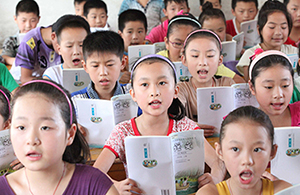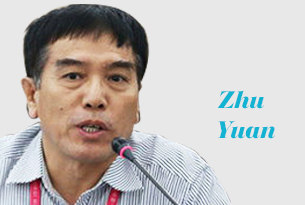Analyzing Premier Li's work report at 12th National People Congress
By Wang Qingfeng (chinadaily.com.cn) Updated: 2014-03-06 10:40A slate of reforms was introduced at two major political meetings in 2013 aimed at fighting the deep-rooted corruption and pollution; sustaining and promoting a healthy and steady economic growth; rebalancing between the state and the market; further opening up the financial market. According to Premier Li's keynotes delivered at National People's Congress, he has once again reiterated that the central government is determined to expand reforms on all fronts.
The anti-corruption campaign swept the nation in 2013 with a magnitude and scale as never seen before. Numbers of high-profile officials were under investigation and some have been already removed from office. More than 180,000 officials have been brought to justice. The swift move of the campaign has created significant momentum. The government has realized that systematic approaches as well as right checks and balances are something urgently needed not only to punish corruption but also to monitor the exercise of power and to prevent corruption. According to Premier Li's speech, "The Chinese government will build a system for combating corruption and penalize crooked officials without mercy in accordance with the law," and "The government will strengthen administrative oversight and correct improper conduct in trades, and intensify auditing and release more auditing results to the public". In his government report, Premier Li also introduced some practical measures to curb and ban officials' conspicuous spending, such as strictly banning construction of new government buildings. Corruption is deeply rooted in the Chinese culture and is well documented in Chinese history. It will never be easy to tackle corruption, but it requires determination and perseverance of the leadership to get to the heart of the problem and to build a systematic approach that could address the problem. Cleaning corruption is one thing, tackling bureaucracy is quite another. Red tape is considered a barrier to business and it hinders decision making. From Premier Li's speech, he said the government is trying to build a smaller, more efficient and streamlined administration by canceling more than 200 items once required to be reviewed or approved from central government and by delegating some items to local government for approval in order to make it easier to invest and to start a new business in China.
We have not only seen the government's efforts on streamlining the administration but also witnessed the government's commitment to reducing its intervention in the market. State-owned enterprise reform is one of the biggest problems for a transitional economy, and China is no exception. Over the past few decades, state-owned enterprises (SOE) have enjoyed privilege as being owned by the government. SOE once dominated almost every sector of the economy. But that has become history. China is taking a gradualist approach to reform its state sectors. Waves of privatization of SOE in China have occurred, but mostly the smaller SOE were privatized, not the bigger ones. It is rather difficult to set free a big fat cow producing milk. On one hand the planning economy's ideologies are hostility toward the concept of privatization, but on the other hand as the economy is transitioning to a market-oriented economy, China will inevitably need to address inefficiency and low quality in management on top of government intervention among the SOEs. "We will formulate measures for non-state capital to participate in investment projects of central government enterprises," Li said in his speech. Private capital will have the opportunity to compete and to participate in a number of areas such as banking, oil, electricity, telecommunications, railway, and public utilities. All these areas are still monopolized under the arms of SOEs. As the government is going to loosen its monopolistic control over these areas, new waves of investment opportunities will be created and enjoyed by private capital.
According to Premier Li's speech, the ongoing financial reform will shift more power to the market on deciding interest rates and extend more autonomy to financial institutions such as banks on adjusting the deposit rate. Banks are now allowed to trade deposits with each other at market determined prices. The next step of interest rate liberalization will happen in the certificate of deposits market. The exchange rate adjustments are allowed to float within an enlarged target range. No concrete roadmap on how it works is laid out yet. My take is that the opening up of financial market or financial structural change will happen at a gradual and steady pace and with precaution in order to safeguard social stability and economic momentum. And, in my view it is also very unlikely that China will allow its currency's value to fluctuate according to the foreign exchange market in the coming years, at least this is not likely to happen before the smooth transition to the consumption-driven economy, where the exchange rate will not be as significant to the economy as at the moment, when the economy is to a large extent driven by export and investment.
Air pollution was one of the hottest topics in Chinese media coverage in 2013. It is also a key concern for millions in China. In many cities in China, air pollution readings often go above the safety limits recommended by the World Health Organization. In his speech, Premier Li reiterated that the government will act on curbing air pollution. His ultimate goal is to transform the country into a beautiful homeland with a sound ecological environment.
China is undergoing political, economical and financial reforms. China is also facing unprecedented opportunities and challenges. China will enjoy the opportunities of even higher economic growth for some time to come as the country is getting ready for further industrialization and urbanization, and there is considerable potential for regional development as stated in Premier Li's speech. China is bracing itself to take the challenges of downward pressure on economy from the reforms and from the global financial uncertainty, in addition to the challenges from a changing world political landscape.
The author is with the Nottingham University Business School China











